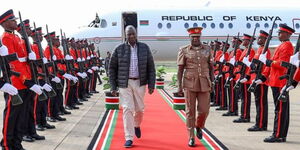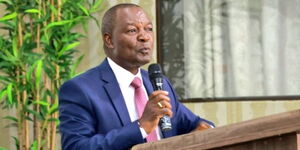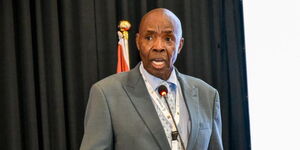Political analyst Mutahi Ngunyi on Sunday listed 7 trends that President Uhuru Kenyatta wants to bring to an end.
Through his weekly show, The 5th Estate, Mutahi opined that Uhuru is aware of this fact and has settled to set the country towards achieving the development fete matching that of Asian giants including that of Singapore, Malaysia, South Korea, and China.
However, the team from Fort Hall School of Government indicated that the President is inclined to address what Mahatma Gandhi listed as "the world's seven sins and the roots of violence".
Firstly, Mutahi believes that Uhuru is about to address the culture of wealth without work that has seen the country experience runaway corruption exemplified by the NSY I and NYS II scandals.
Besides, Mutahi opines that Uhuru is seeking to address knowledge without character, business without morality, and science without humanity.
Moreover, the political analyst indicates that is Uhuru's recent trajectory is anything to go by, he is set to address the issue of government without a soul, worship without sacrifice and pleasure without conscience.
Mutahi further noted that Kenya is at the inflexion point of its growth curve and can only accelerate or decelerate going forward.
Noting how it took some degree of dictatorship for the Asian countries to develop, Mutahi adds that Uhuru needs to understand that he may be forced to walk the path as a lone ranger.
"The x-factor here is our politics. We can choose to make the government an object of desire for those who wish to eat and grow rich. But we can also choose to change this," Mutahi stated adding that Uhuru is inviting Kenyans to be part of the change.
"Change is a not a product of dialogue, it is a product of force. Joseph Stalin did not seek the permission of Russians to industrialize their country, he just did it.
"Uhuru should not shy away from using force to change the country and this is the only way we will ever become a Singapore, Malaysia, South Korea, or China," Mutahi concluded.
Dead politics? Uhuru's Way or the Highway https://t.co/pwL9TGBLT2 via @YouTube












